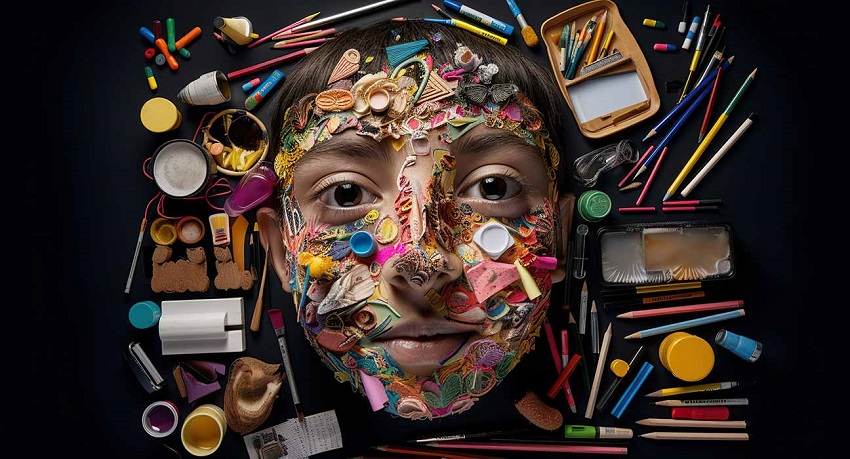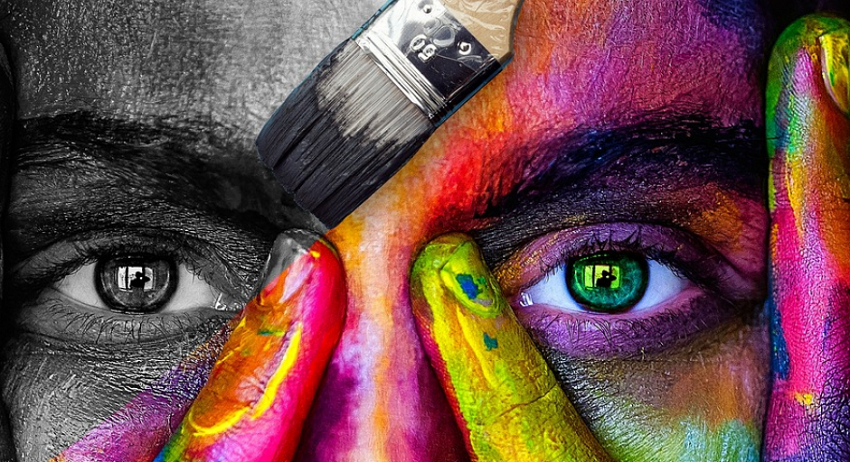
29 Jul What are the Risks of Art Therapy?
Art therapy has gained popularity as an effective way to promote mental and emotional well-being. It involves the use of creative processes, such as drawing, painting, and sculpting, to help individuals express themselves and explore their emotions. While art therapy can be incredibly beneficial, it is essential to understand that there are also risks associated with this form of therapy. In this article, we will delve into the potential risks of art therapy and how they can be managed. This article is provided by anxietyfightersguide.com
Triggering Emotional Distress
Art therapy encourages individuals to tap into their emotions and express themselves through art. While this can be cathartic and healing, it can also trigger emotional distress. Exploring painful memories or traumatic experiences through art may bring up intense feelings, leading to emotional discomfort. Art therapists must be prepared to handle such situations delicately and create a safe space for the individual to process these emotions.
Unearthing Unresolved Issues
Art therapy is a powerful tool that can help individuals explore their emotions and inner experiences through creative expression. Engaging in art therapy may bring to the surface unresolved issues that the individual was not fully aware of or had been avoiding. By using various art materials, individuals can discover what is art therapy and how it can help them express themselves in a safe and non-judgmental environment. However, this can be challenging to navigate, as the person might not be ready to confront these issues. Art therapists should be skilled in recognizing signs of distress and providing appropriate support to help the individual work through these challenges at their own pace.
Overwhelming Vulnerability
Art therapy often involves the sharing of personal artwork and emotions with the therapist. This vulnerability can be overwhelming for some individuals, especially those who have difficulty trusting others or fear judgment. It is crucial for art therapists to build a strong therapeutic alliance with their clients to make them feel secure and valued.
Potential Misinterpretation of Art
Interpreting art can be subjective, and there is a risk of misinterpreting the meaning behind the artwork. This misinterpretation could lead to misunderstandings between the therapist and the individual, potentially hindering the therapeutic progress. Art therapists should approach the interpretation with sensitivity and always seek clarification from the client to avoid miscommunication.
Frustration with Artistic Skills
For individuals with limited artistic skills, the process of creating art might become frustrating and demotivating. They may feel that their lack of artistic talent diminishes the value of their emotional expression. In such cases, art therapists should emphasize the process of creation rather than the final product and encourage self-compassion.
Lack of Compatibility with Therapist
The success of art therapy greatly depends on the rapport between the individual and the therapist. Sometimes, due to differences in personalities or approaches, there might not be a strong connection between them. If the individual does not feel comfortable with the therapist, the therapy may not be as effective. In such cases, it is essential for the individual to discuss their concerns openly or consider finding a different art therapist.
Emotional Exhaustion for the Therapist
Art therapists are also at risk of experiencing emotional exhaustion due to the intense nature of the work they do. They are exposed to their clients’ emotional struggles and may carry some of that emotional burden. To prevent burnout, art therapists must practice self-care and seek support from their peers or supervisors.
Encouraging Avoidance through Art
While art therapy encourages self-expression, some individuals may use it as a way to avoid addressing their problems directly. Instead of facing their issues, they might continuously escape into the world of art. Art therapists should be mindful of this possibility and gently guide their clients towards confronting their challenges in a balanced manner.
Ethical Considerations
Art therapists must adhere to strict ethical guidelines, especially concerning the confidentiality and privacy of their clients. Breaching these ethical standards can have severe consequences and impact the trust between the therapist and the individual.
Limited Availability and Access
Art therapy may not be readily available in all areas, making it challenging for some individuals to access this form of therapy. Limited availability might also result in long waiting lists, delaying the support that some people urgently need.
Conclusion
Art therapy is a valuable and powerful form of therapeutic intervention, offering individuals a creative way to express themselves and explore their emotions. However, it is essential to recognize and address the potential risks associated with this therapy. By fostering a safe and supportive environment, art therapists can help individuals navigate these risks effectively and harness the full potential of art therapy as a means of healing and growth.
FAQs
- Is art therapy suitable for everyone?
Art therapy can be beneficial for many individuals, but it may not be the best fit for everyone. It is essential to consult with a qualified art therapist to determine if this approach aligns with your needs and goals.
- How long does art therapy typically last?
The duration of art therapy can vary depending on individual circumstances and goals. Some individuals may experience positive outcomes in a few sessions, while others may benefit from longer-term therapy.
- Can art therapy replace traditional talk therapy?
Art therapy can complement traditional talk therapy approaches, but it is not intended to replace them entirely. It offers an additional means of expression and exploration of emotions.
- What if I am not good at art? Can I still benefit from art therapy?
Absolutely! Art therapy is not about artistic skills but rather about self-expression and emotional exploration. Everyone can benefit from art therapy, regardless of their artistic abilities.
- How can I find a qualified art therapist near me?
You can start by contacting local mental health organizations or searching online directories for certified art therapists in your area. Always ensure the therapist’s credentials and experience before making a decision.


Sorry, the comment form is closed at this time.